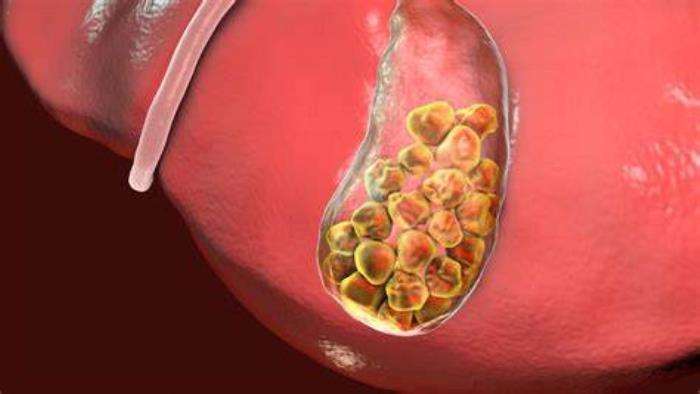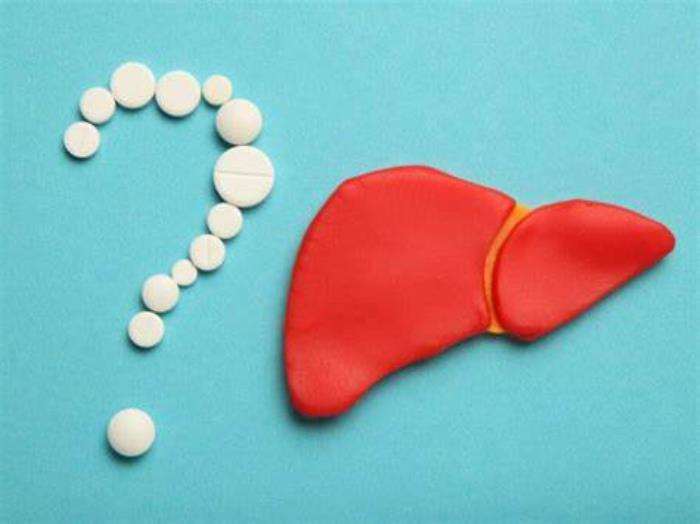After undergoing liver transplant surgery, patients may experience various complications, one of which includes issues related to the bile duct. The bile duct is responsible for transporting bile from the liver to the small intestine, aiding in digestion. Complications can arise due to strictures, leaks, or infections, significantly impacting the patient's recovery and overall health. Understanding these complications is crucial for both patients and healthcare providers to ensure timely intervention and management.
Medical disclaimer: This content is for general awareness and does not replace a doctor’s consultation. For diagnosis or treatment decisions, consult a qualified specialist.
Common Bile Duct Complications Following Liver Transplant
Several complications can occur in the bile duct following a liver transplant. The most common include bile leaks, which occur when bile escapes from the duct into the surrounding tissue, and bile duct strictures, which are narrowings that impede bile flow. These complications can lead to symptoms such as jaundice, abdominal pain, and fever. Early identification and management are essential to prevent severe outcomes, including liver dysfunction or the need for re-transplantation.
Symptoms Indicating Bile Duct Issues After Transplant
Patients should be vigilant for symptoms that may indicate bile duct issues post-transplant. Common symptoms include jaundice (yellowing of the skin and eyes), dark urine, pale stools, and abdominal pain, particularly in the upper right quadrant. Additionally, fever and chills may signal an infection. Recognizing these symptoms early can facilitate prompt medical evaluation and intervention, which is critical for maintaining liver health and function.

Diagnostic Procedures for Bile Duct Complications
To diagnose bile duct complications after a liver transplant, healthcare providers employ various diagnostic procedures. Common methods include ultrasound, which can visualize bile duct obstructions, and magnetic resonance cholangiopancreatography (MRCP), a non-invasive imaging technique. In some cases, an endoscopic retrograde cholangiopancreatography (ERCP) may be performed, allowing for both diagnosis and therapeutic intervention, such as stent placement to relieve strictures.
Initial Management Strategies for Bile Duct Issues
Initial management of bile duct issues typically involves conservative measures. For instance, in cases of mild bile leaks, observation may be sufficient, as many leaks resolve spontaneously. In contrast, strictures often require more active management, potentially including stenting during an ERCP. The choice of intervention depends on the severity of the complication and the patient's overall condition, emphasizing the importance of individualized treatment plans.
Interventional Techniques for Bile Duct Complications
For more severe bile duct complications, interventional techniques are often necessary. ERCP is a common procedure used to diagnose and treat bile duct issues, allowing for the removal of stones, placement of stents, or balloon dilation of strictures. In cases where ERCP is not successful or feasible, surgical intervention may be required to repair the bile duct or create a bypass. These interventions aim to restore normal bile flow and prevent further complications.
Importance of Regular Follow-Up After Liver Transplant
Regular follow-up appointments are crucial for patients post-liver transplant to monitor for potential complications, including bile duct issues. These visits typically involve blood tests to assess liver function, imaging studies to evaluate bile duct patency, and clinical assessments of symptoms. Early detection of complications can significantly improve outcomes, making adherence to follow-up schedules essential for long-term health.
Role of Immunosuppressive Therapy in Bile Duct Management
Immunosuppressive therapy is a cornerstone of post-transplant care, aimed at preventing organ rejection. However, the use of these medications can complicate bile duct management. Patients on immunosuppressants may be at higher risk for infections, including bile duct infections. Therefore, healthcare providers must carefully balance immunosuppression with the need for vigilant monitoring and management of potential bile duct complications.
Nutrition and Lifestyle Modifications Post-Transplant
Nutrition plays a vital role in recovery after liver transplant surgery. Patients are often advised to adopt a balanced diet rich in vitamins and minerals to support liver health and overall recovery. Additionally, lifestyle modifications, such as avoiding alcohol and maintaining a healthy weight, can help reduce the risk of bile duct complications. Engaging in regular physical activity, as advised by healthcare providers, also contributes to improved health outcomes.
Patient Education on Bile Duct Issues After Transplant
Patient education is paramount in managing bile duct issues post-transplant. Healthcare providers should inform patients about the symptoms of bile duct complications, the importance of adherence to follow-up appointments, and the potential need for interventions. Providing educational materials and resources can empower patients to recognize warning signs early and seek timely medical attention, ultimately improving their recovery experience.

Psychosocial Support for Liver Transplant Patients
Psychosocial support is essential for liver transplant patients as they navigate the complexities of recovery, including potential bile duct issues. Emotional and psychological challenges may arise, necessitating access to support groups or counseling services. Addressing mental health is crucial, as it can significantly impact patients’ adherence to medical recommendations and their overall quality of life during recovery.
Long-Term Outcomes of Bile Duct Management After Transplant
The long-term outcomes of managing bile duct issues post-liver transplant can vary significantly among patients. Successful management often leads to improved liver function and quality of life. However, some patients may experience persistent complications, necessitating ongoing monitoring and potential interventions. Understanding these long-term implications is vital for both patients and healthcare providers to ensure comprehensive care and support.
Research and Advances in Bile Duct Management
Ongoing research in the field of liver transplantation is focused on improving the management of bile duct complications. Advances in surgical techniques, imaging modalities, and pharmacological therapies are being explored to enhance patient outcomes. Additionally, studies are investigating the role of biomarkers in predicting complications, which could lead to more personalized approaches in managing patients post-transplant.
Collaborative Care Approach in Managing Bile Duct Issues
A collaborative care approach involving a multidisciplinary team is essential for effectively managing bile duct issues post-liver transplant. This team typically includes hepatologists, transplant surgeons, radiologists, and nutritionists working together to provide comprehensive care. Such collaboration ensures that all aspects of the patient's health are addressed, facilitating timely interventions and optimal recovery.
Understanding the Role of Liver Transplant Centers
Liver transplant centers play a crucial role in managing bile duct complications. These specialized centers provide comprehensive care, including pre-transplant evaluation, surgical intervention, and post-transplant follow-up. The expertise available at these centers ensures that patients receive the highest quality of care, tailored to their individual needs, which is essential for addressing complex issues like bile duct complications.
Future Directions in Bile Duct Complications Research
Future research in bile duct complications following liver transplantation is likely to focus on enhancing diagnostic accuracy and treatment efficacy. Innovations in imaging technology and minimally invasive techniques are anticipated to play a significant role in improving patient outcomes. Furthermore, exploring the genetic and molecular factors associated with bile duct complications may lead to better predictive models and targeted therapies for at-risk patients.
Addressing Neurological Complications After Liver Transplant Surgery
Explore approaches to handle neurological complications that may arise after liver transplant surgery. This blog provides insights into potential challenges and solutions.
Understanding MELD Score and Its Role in Liver Transplantation
Gain insights into the MELD score and its significance in determining liver transplant eligibility. This blog explains how the score impacts patient prioritization and outcomes.
Patient Experiences and Testimonials on Bile Duct Management
Patient experiences and testimonials can provide valuable insights into the management of bile duct issues after liver transplant. Many patients share their journeys, highlighting the importance of early symptom recognition and effective communication with healthcare providers. These narratives can serve as educational tools for new patients navigating similar challenges, fostering a sense of community and support.
Best Liver Transplant in India
The Best Liver Transplant in India provides life-saving treatment for patients with end-stage liver disease, offering advanced surgical techniques and comprehensive post-transplant care for successful recovery.
Best Liver Transplant Hospitals in India
The Best Liver Transplant Hospitals in India are equipped with cutting-edge technology and expert medical teams, ensuring top-notch care and optimal recovery for liver transplant patients.
Liver Transplant Cost in India
The Liver Transplant Cost in India offers an affordable solution for patients needing liver transplantation, ensuring access to world-class care at competitive pricing.
Best Liver Transplant Surgeons in India
The Best Liver Transplant Surgeons in India are highly skilled in performing liver transplants, providing precise surgeries and personalized care to ensure the best possible outcomes for their patients.
FAQs About Bile Duct Issues After Liver Transplant Surgery
What are the common signs of bile duct complications after a liver transplant?
Common signs of bile duct complications include jaundice, dark urine, pale stools, and abdominal pain. Patients should report these symptoms to their healthcare provider promptly.
How are bile duct issues diagnosed after liver transplant?
Bile duct issues are diagnosed using imaging techniques such as ultrasound, MRCP, and ERCP. These methods help visualize the bile ducts and identify any obstructions or leaks.
What treatment options are available for bile duct complications?
Treatment options vary based on the specific complication. They may include observation for mild leaks, stenting for strictures, or surgical intervention for more severe cases.
How can patients prevent bile duct complications after liver transplant?
Patients can prevent complications by adhering to follow-up appointments, maintaining a healthy lifestyle, and promptly reporting any concerning symptoms to their healthcare provider.
What is the long-term outlook for patients with bile duct issues after liver transplant?
The long-term outlook varies; many patients experience successful management of complications, while others may face ongoing challenges. Regular monitoring and individualized care are essential for optimal outcomes.
Discover the best hospitals in India for liver transplant procedures, including top choices, advanced techniques, and cost-effective options. Liver Transplant in India
Liver transplant surgery, while life-saving, involves several risks and potential complications. These include surgical complications such as bleeding, infection, and problems with the bile ducts. There is also the risk of organ rejection, post-operative infections, kidney dysfunction, and long-term health issues such as high blood pressure, high cholesterol, and certain cancers. Understanding these risks is essential for patients and their families to make informed decisions and prepare for post-surgery care. Risks and Complications of Liver Transplant Surgery
Recent advancements in minimally invasive liver transplant techniques have revolutionized the field, offering patients less invasive options with faster recovery times and reduced complications. Key innovations include laparoscopic-assisted liver transplantation, which uses small incisions and a camera for precision, and robotic-assisted surgery, which provides enhanced control and accuracy. These techniques minimize tissue damage, reduce postoperative pain, and shorten hospital stays, making liver transplants safer and more accessible. Innovations in Minimally Invasive Liver Transplant Techniques